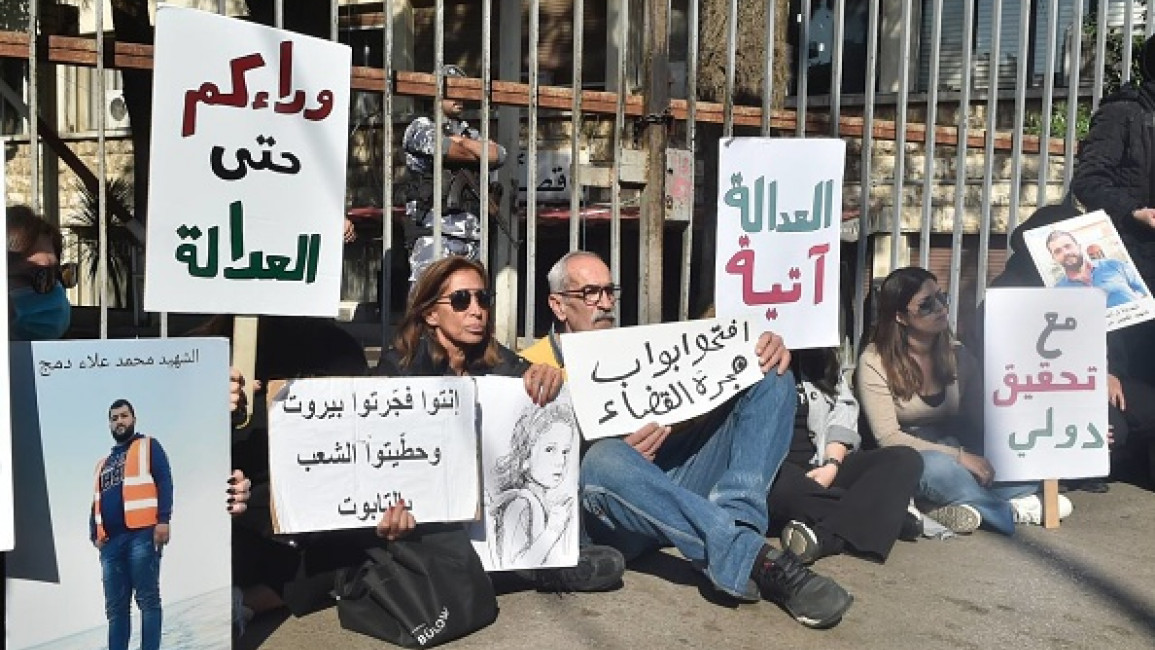Thirty-eight countries urge accountability for Beirut port explosion
A group of 38 countries, led by Australia, issued a joint statement at the UN Human Rights Council (HRC) on Tuesday urging accountability for the 4 August 2020 Beirut port blast, which killed at least 251 and injured over 6,500.
The statement called for the Lebanese government to ensure an independent and credible probe into the Beirut port blast.
"The joint statement issued at the UN HRC today confirms the world’s commitment to ensuring justice for the deadly Beirut port explosion," Aya Majzoub, the Deputy Regional Director for MENA at Amnesty International, said.
More than 30 months after the port blast, no one has been prosecuted for the deadly explosion.
Australia's joint statement stopped short of calling for an international-fact finding mission - a key demand of Lebanese civil society and the victims' families as the domestic investigation is blocked by authorities.
To create an international probe into the port blast, a member of the HRC would have to advance a resolution to establish the investigation which would then be voted on by members.
Australia is not a sitting member of the HRC and cannot put forth a resolution.
Lebanon has a domestic investigation into the port blast case, but it has been effectively stalled since December 2021.
Amnesty International has said that "it is patently clear that the Lebanese authorities are determined to obstruct justice," pointing to "repeated" obstacles thrown in front of the domestic investigation.
On 23 January, the investigative judge on the port blast case, Tarek Bitar, issued a legal opinion which allowed him to resume work on the case after a year and a half.
Bitar then issued charges against several high-ranking officials and set dates for their interrogations.
The Lebanese judiciary quickly mobilised against Bitar, however, and the country's top public prosecutor said that the judge had "overstepped his powers" and told security agencies not to implement Bitar's judicial orders.
The domestic investigation has been stalled since then, prompting human rights organisations and victims to look towards an international investigation as the last chance for justice in the case.
Australia's statement on Tuesday urged Lebanese authorities to "abide by its international human rights obligations" and to preserve the "independence and impartiality of the Lebanese judiciary."



